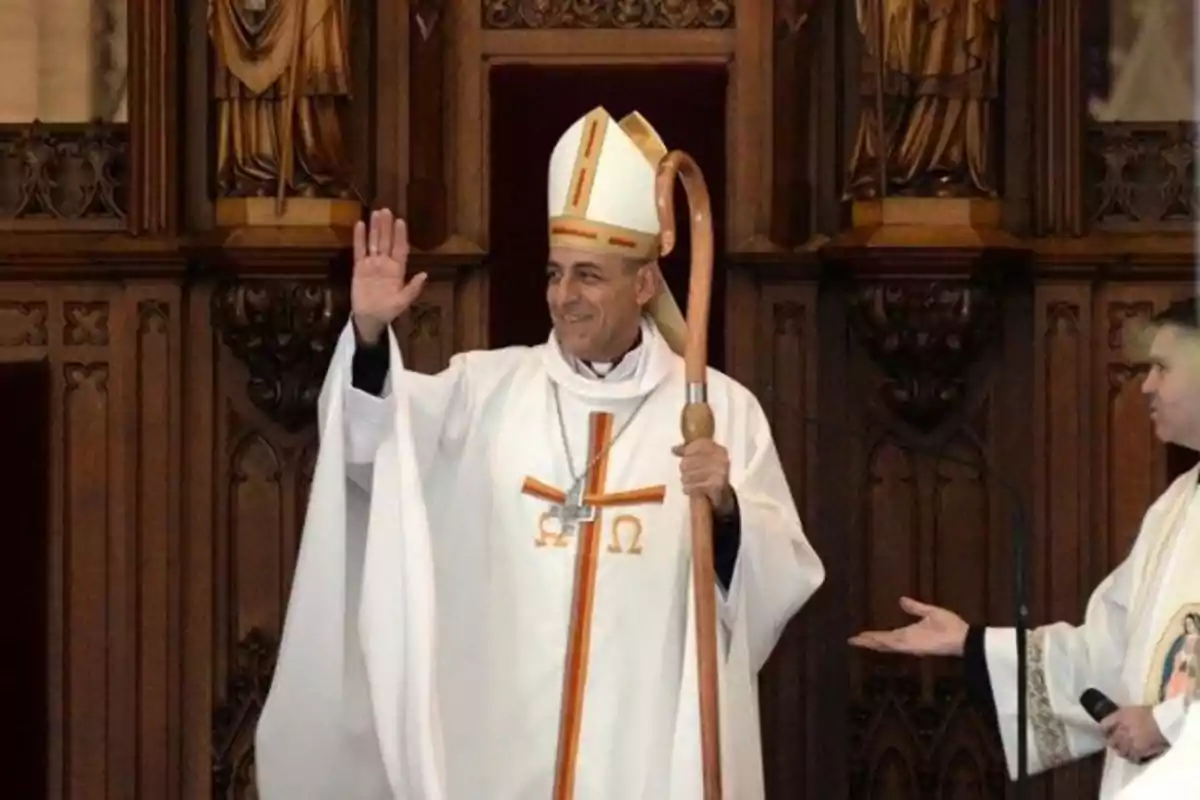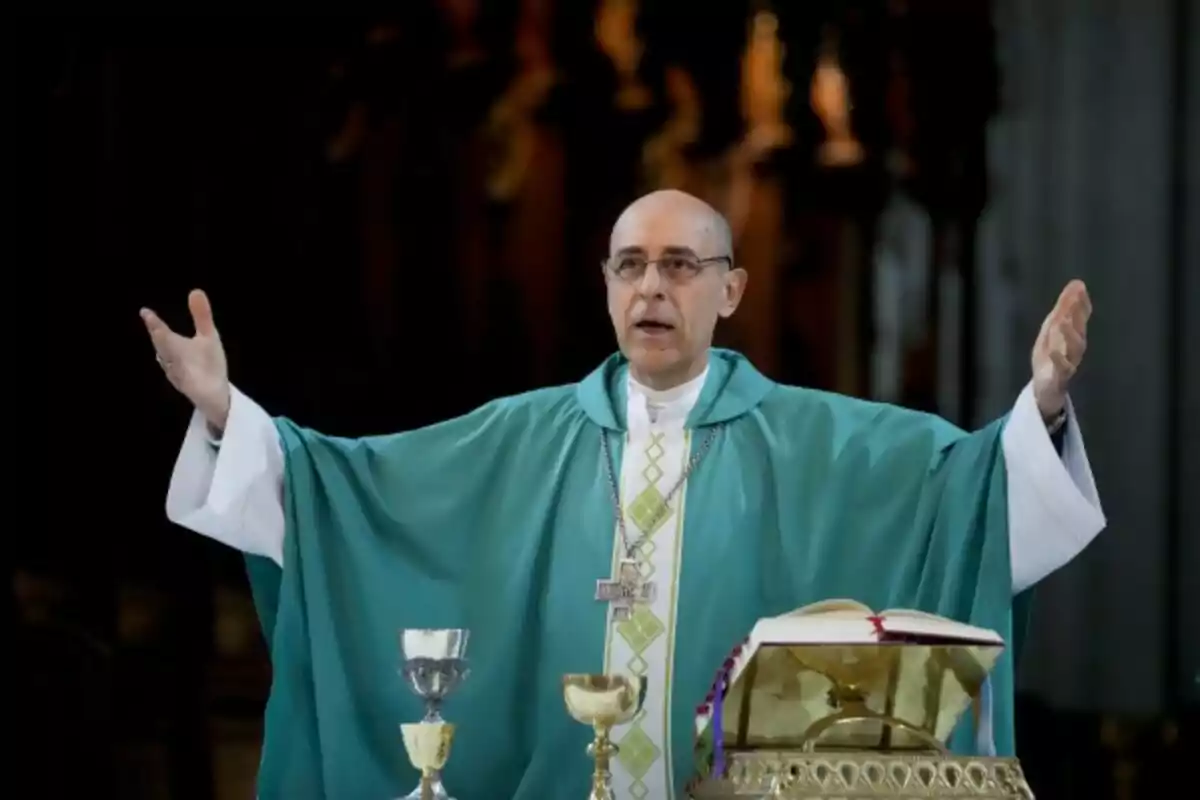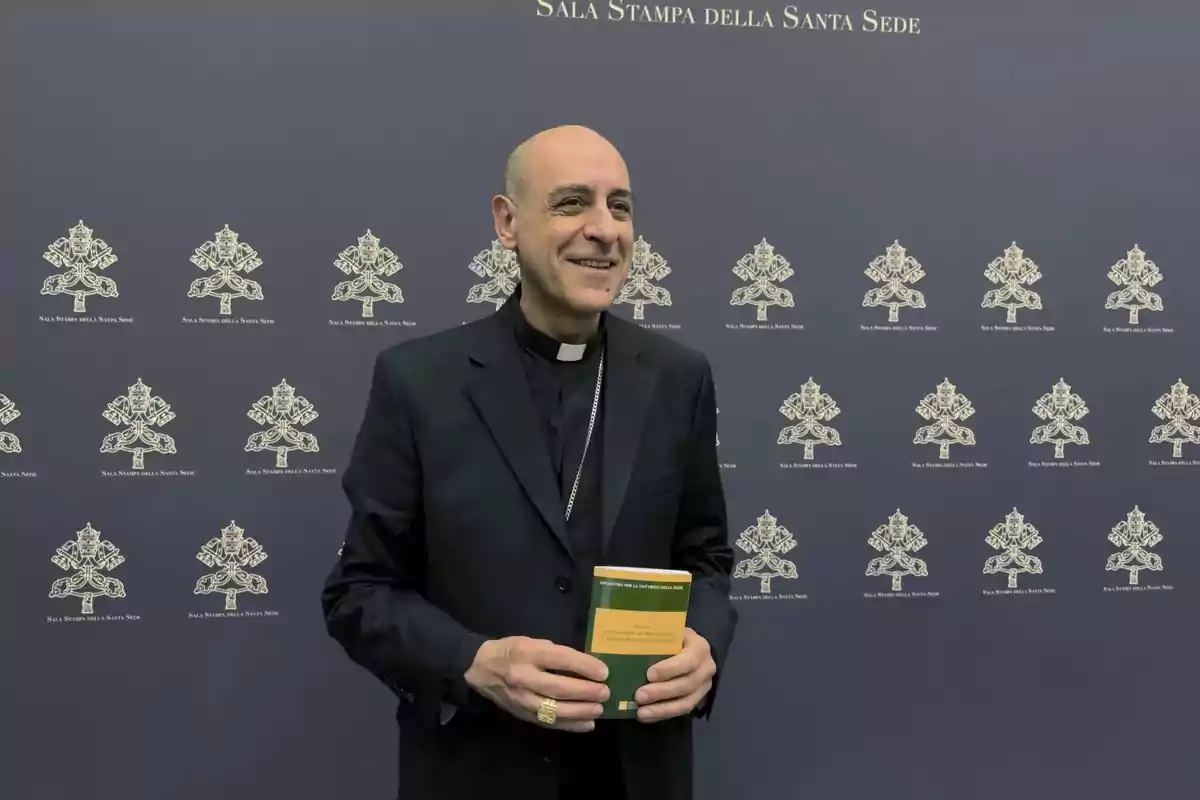
The Vatican's doctrine chief strongly criticized gender ideology
Additionally, he rejected the idea that biological sex can be modified according to individual desires.
Cardinal Víctor Manuel Fernández criticized gender ideology, warning about the "claim of omnipotence" that accompanies this doctrine and rejecting the idea that biological sex can be modified according to individual desires.
The former archbishop of La Plata, who since September 2023 holds the position of Prefect of the Dicastery for the Doctrine of the Faith of the Vatican, made this strong criticism of gender ideology during his virtual participation in a congress of the School of Catholic Theology of Cologne, Germany.
Fernández argued that "transgender" surgery goes beyond mere aesthetic modifications, as it involves "the claim of a change of identity, the desire to be a different person".

He also criticized the use of technologies to create an "alternative reality at convenience" and the idea that bodily sexual identity can be drastically modified according to personal desires.
The cardinal pointed out the "claim of omnipotence" of this current, which denies the determination of biological sex in the person. Instead, Fernández rejected the conception that sexual identity can be altered according to individual desires.
However, he acknowledged that some people experience "severe (gender) dysphoria" (deep feelings of discomfort or even rejection toward their biological sex), which can lead to "unbearable" life situations. In these cases, he emphasized that detailed evaluations should be conducted and care offered with delicacy and "extreme caution".
Fernández contextualized his statements within the defense of the infinite dignity of the human being, a concept that was developed in the Vatican document Dignitas infinita, published by his Dicastery in February 2024.
This dignity, Fernández explained, doesn't depend on a person's natural abilities, citing Saint John Paul II, who first used this term during a meeting with people with disabilities.

The Argentine Church has not yet formally pronounced on gender ideology, but it is expected to do so soon, especially given that the issue has not only gained relevance in local public opinion but also because of the importance of education in promoting or rejecting these concepts.
Parents' protests, especially regarding the inclusion of this harmful ideology in Comprehensive Sexual Education (CSE), which is considered by the Vatican as distorting of human dignity, are driving an increasingly relevant debate.
Background
In 2016, during a conversation with journalists on the plane returning to Rome from Azerbaijan, Pope Francis expressed his concern about gender indoctrination in schools.
He recounted the anecdote of a father who asked his 10-year-old son what he wanted to be when he grew up, to which the boy replied: "ragazza" (girl). Francis commented that the father realized that his son's school book taught gender ideology, which, according to the Pope, went against the natural.
That same year, the Pope denounced the covert indoctrination in school textbooks in France, influenced by this theory. In 2019, the Vatican published a document aimed at teachers in Catholic schools to help them counter gender ideology, arguing that this theory denies the natural distinction between men and women.
The 2016 intervention was not the first time, nor would it be the last, that Francis addressed the issue of gender ideology, which he defined as "an ideological colonization" that, by trying to eliminate the natural differences between men and women, attacks creation.
More posts: